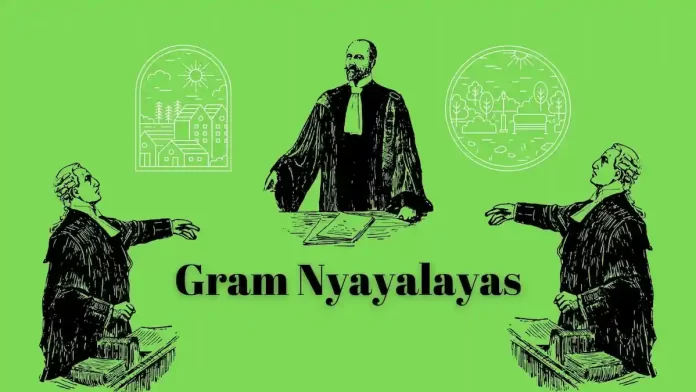Gram Nyayalayas are deemed to be a Court of Judicial Magistrate of First Class with both civil and criminal jurisdiction to settle petty disputes at the village level. In English, the word “Gram Nyayalayas” means village courts.
To provide access to justice to the citizen at their doorsteps, the Central Government has enacted the Gram Nyayalayas Act, 2008.
The Act provides for the establishment of Gram Nyayalayas at the intermediate Panchayat level.
The State Governments are responsible for establishing Gram Nyayalayas in consultation with the respective High Courts.
As per information made available by State Governments and High Courts, 476 Gram Nyayalayas have been notified so far by 15 States and Union Territories. Out of these, 257 are operational in 10 States at present.
Do States have to Mandatorily Set Up Gram Nyayalayas?
No, the Gram Nyayalayas Act, 2008 does not make the setting up of Gram Nyayalayas mandatory.
As per Section 3(1) of the Gram Nyayalayas Act, 2008, the State Governments are responsible for establishing Gram Nyayalayas in consultation with the respective High Courts.
What are the Issues Affecting the Operationalization of the Gram Nyayalayas?
The issues affecting the operationalization of the Gram Nyayalayas were discussed in the Conference of Chief Justices of High Courts and Chief Ministers of the States on 7th April 2013.
It was decided in the Conference that the State Governments and High Courts should decide the question of setting up Gram Nyayalayas wherever feasible, taking into account the local issues and situation.
For the opening of Gram Nyayalayas, the Central Government has been encouraging the States by way of providing financial assistance.
